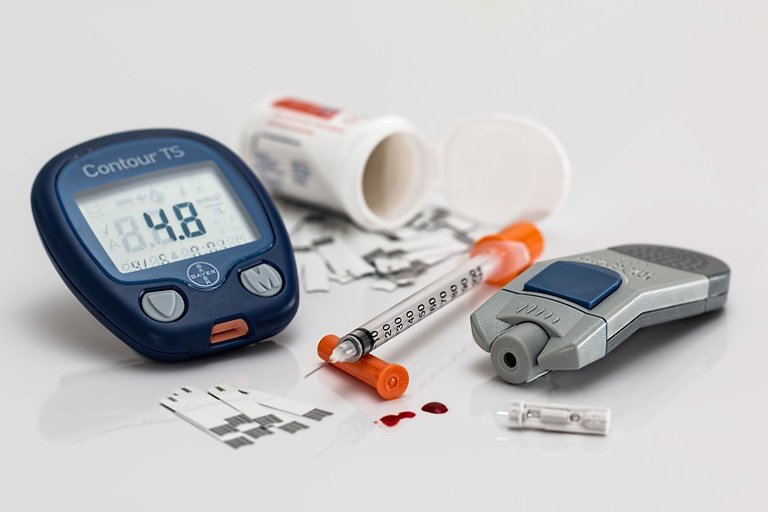When the glucose level in our blood is raised above the normal limit it is called hyperglycemia. Generally, we might think that diabetes and hyperglycemia are same things but actually not. All diabetes is indeed a state of hyperglycemia but all hyperglycemia may not be reached (yet) to diabetes level. This level of persistently raised blood glucose is known as pre-diabetes ( or impaired glucose).

image source
So far, we have learned that hyperglycemia may be classified as pre-diabetes and diabetes. So what is the outcome we might have for these two?
Outcome of Pre-diabetes :
- A person with pre-diabetes are at much higher risk of developing full-blown diabetes
- Increased risk of macro-vascular complications; mostly the large blood vessels become narrow due to deposition of lipid (fat) in the wall of the vessels (atheroma).
- Increased risk of cardiovascular diseases such as heart attack (Myocardial Infarction), stroke, peripheral vascular disease
Outcome of diabetes(uncontrolled or poorly controlled):
- Increased risk of microvascular (small/narrow vessels) complications. Mostly affected organs are eyes (Retinopathy), Kidneys (nephropathy) and nervous system (neuropathy)
When should we call it diabetes or pre-diabetes?
With the advent of glucometer, we can check glucose level of our blood at any time, anywhere. If we just know the units of measurement of that particular glucometer and normal value of blood glucose in relation to the time of taking the meal, we can easily find out either of diseases.
Two types of unit of measurements are available: mmol/L & mg/dL
we can convert on to another easy (roughly) by this way: mmol/L × 18 = mg/dL
You are a diabetic, if:
Fasting blood glucose (before breakfast): ≥ 7.0 mmol/L (126 mg/dL)
Or
Random blood glucose (anytime) or 2 hours after a 75 g glucose drink or 2 hours after a meal: ≥ 11.1 mmol/L (200 mg/dL)
You are a pre-diabetic, if :
Fasting blood glucose: ≥ 6.0 mmmol/L (108 mg/dL) but < 7.0 mmol/L (126 mg/dL) [ It is also known as impaired fasting glucose]
Fasting blood glucose < 7.0 mmol/L (126 mg/dL) and 2 hours after a 75 g glucose load 7.8-11.1 mmol/L (140-200mg/dL) [It is also known as impaired glucose tolerance]

Attention Please!!! Specially For Newbies
Do not forget to leave a quality comment in the posts of the following authors. In most of the cases, you will get sweet upvote in your comments. @ghasemkiani , @juliank , @cryptopie , @surpassinggoogle (also make comment in those post resteemed by him), @beanz (same as surpassinggoogle ), @jaki01 (better to upvote to his blog)
How to ? ) and get sweet lifetimeBe part of the @qurator team ( upvote in your posts (every 24 hours). You can also call the @qustodian bot (exclusively for qurite member only) once in every 24 hours to get upvote worth 2.5-3 times of your payment.
Join here) and get free upvotes in all of your posts. Try to keep voting power above 95% for better upvotesJoin @shadowbot (
Need Health advice or want to take part in daily health discussion? Join the @air-clinic team ( #air-clinic )
My mother is suffering from diabetes . Its very dangerous disease . My whole family elders are suferring from it. Thanks for sharing . Good post i really like it
Hmm. that's alarming. This disease runs in the family. So you have high probability to have diabetes. Sorry to say that.
Diabetes is one of the dangerous diseases that can kill you without you knowing it. Thanks for sharing
100% correct comment :)
Can i contact with you? by whatsapp or messenger.
Sure. In Facebook. You will find it my profile.
Thank you for the information!
Thanks for stopping by and making one comment. Much appreciated.
health conscious